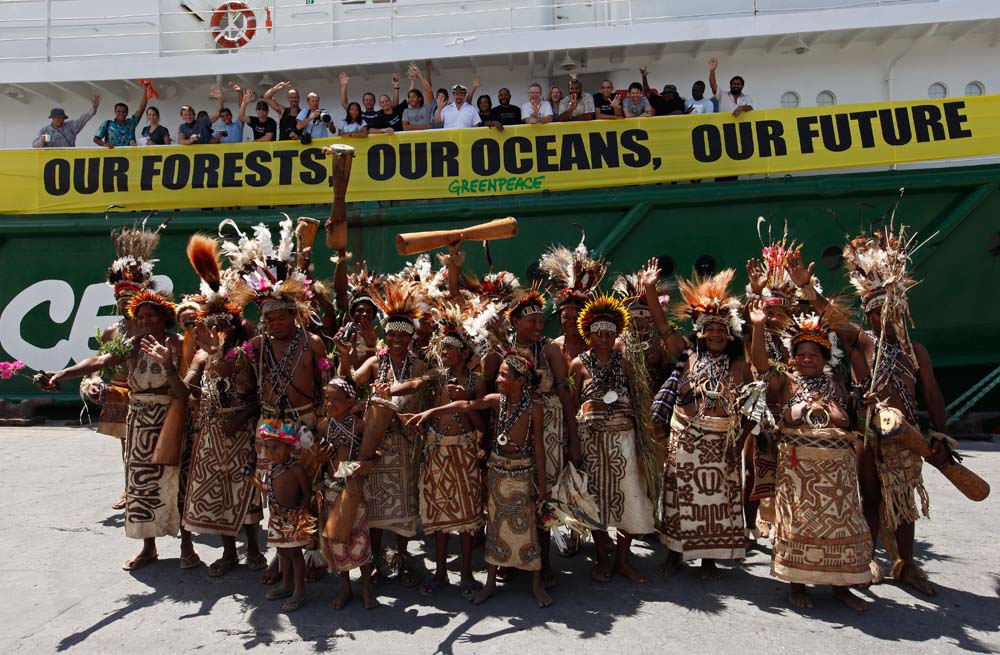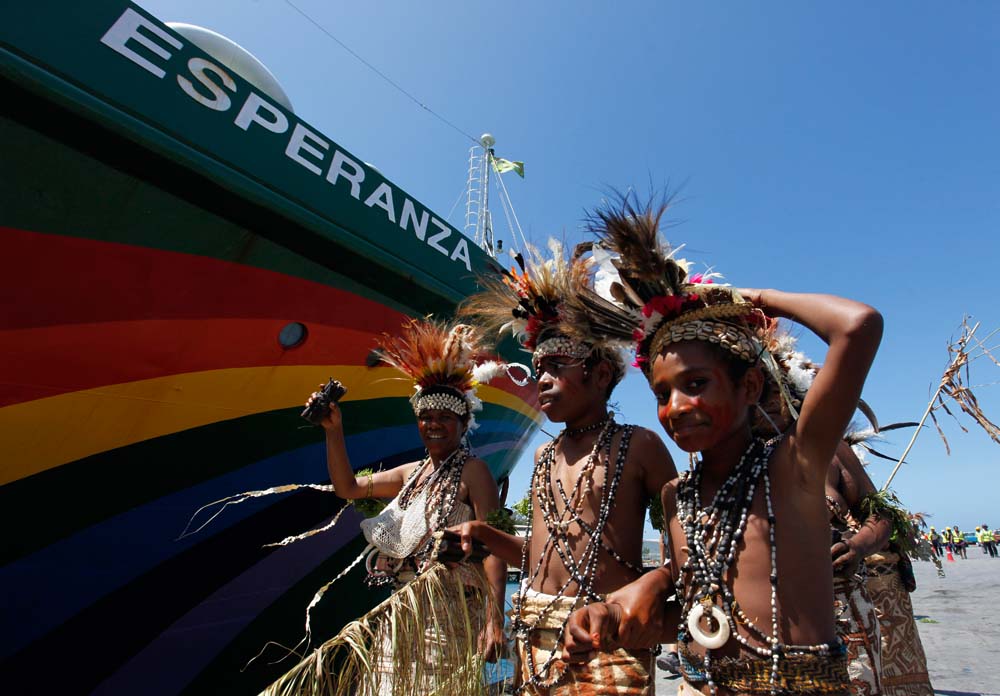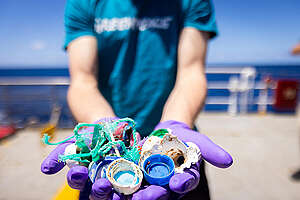
My name is Jamie, I work as the Online Manager in the Sydney office. I’ve just arrived in Port Moresby to join the MY Esperanza on the second leg of the Defending the Pacific ship tour.
I have never been on a ship before other than a day trip to France from England so the prospect of spending the next six weeks at sea is both exciting and a little nerve-wracking. I’m just hoping I have inherited sea-legs from my Grandfather who was a Chief Engineer in the merchant navy.
Papua New Guinea is a country rich in natural resources, which are sadly very much open to foreign exploitation. In the arrivals “lounge” at Port Moresby international airport the only tourist information is what looks like a guide book with tribesman on the front with a vivid yellow painted face, is in fact a mining and petroleum guide with handy map. This is very telling.
The map shows a Papua New Guinea peppered in every region by mines, potential mines, petroleum projects and extensive logging, it is the map of a nation being plundered of every resource, every which way.
This plundering extends to the waters around PNG where overfishing and illegal fishing have caused a dramatic drop in the number of tuna, with some species threatened with extinction.
Papua New Guinea’s fisheries and forests are unique and precious. They are also under serious threat.
Last week the Esperanza joined local land owners in the remote Pomio district in the remote East New Britain province to stand united in protest against notorious Malaysia logging company, Rimbunan Hijau to protect PNG’s vital forests.
“A major scandal involving the destruction of forests and the abuse of human rights is rapidly unfolding in my country,” said Greenpeace forests campaigner in PNG, Sam Moko.

Greenpeace has used its ships the Esperanza and the Rainbow Warrior to make four voyages across the Pacific, over the the next six weeks we will again be defending the Pacific tackling tuna overfishing, pirate fishing and destructive fishing methods to support Pacific Island Countries in their efforts to manage the region’s tuna fisheries in a sustainable way.

